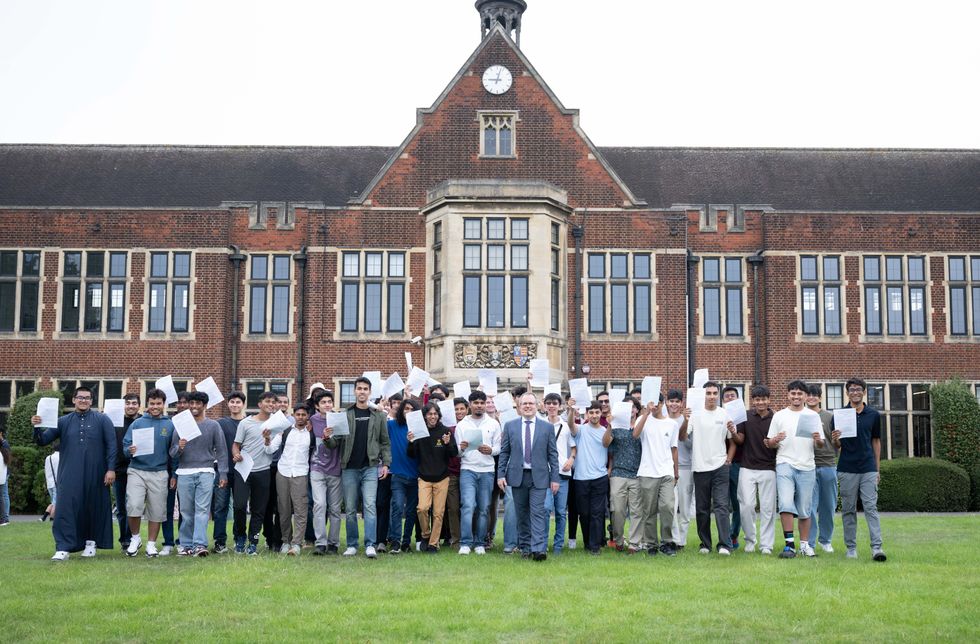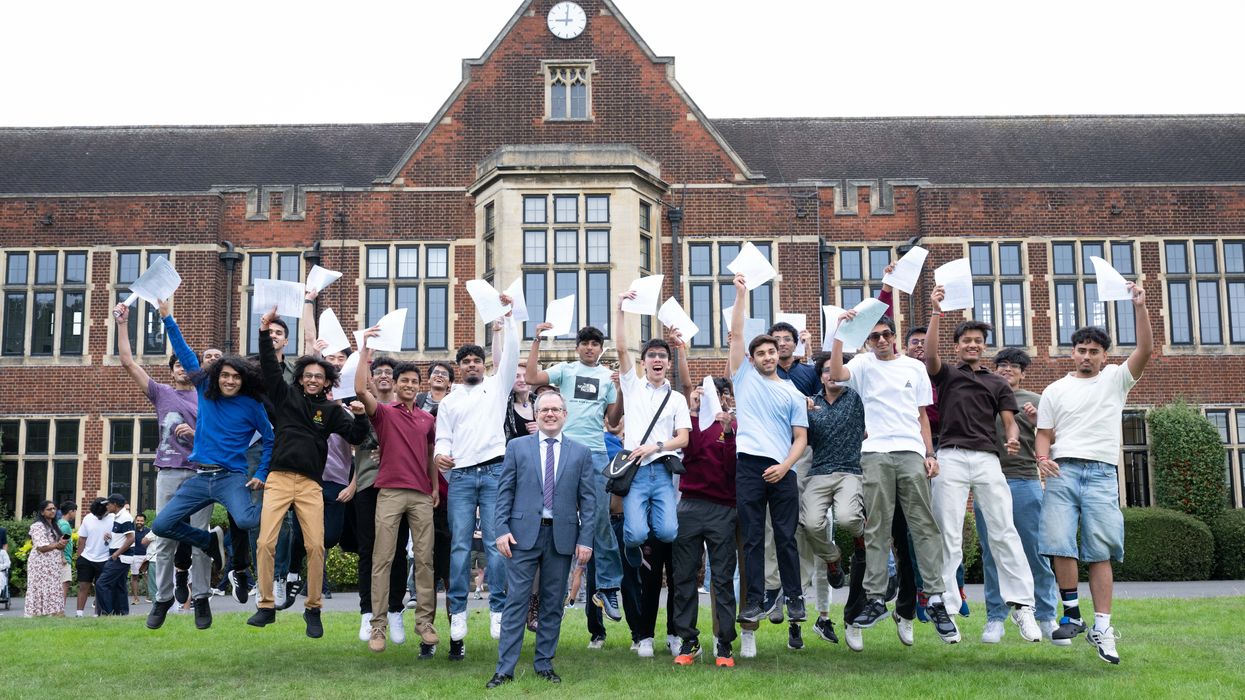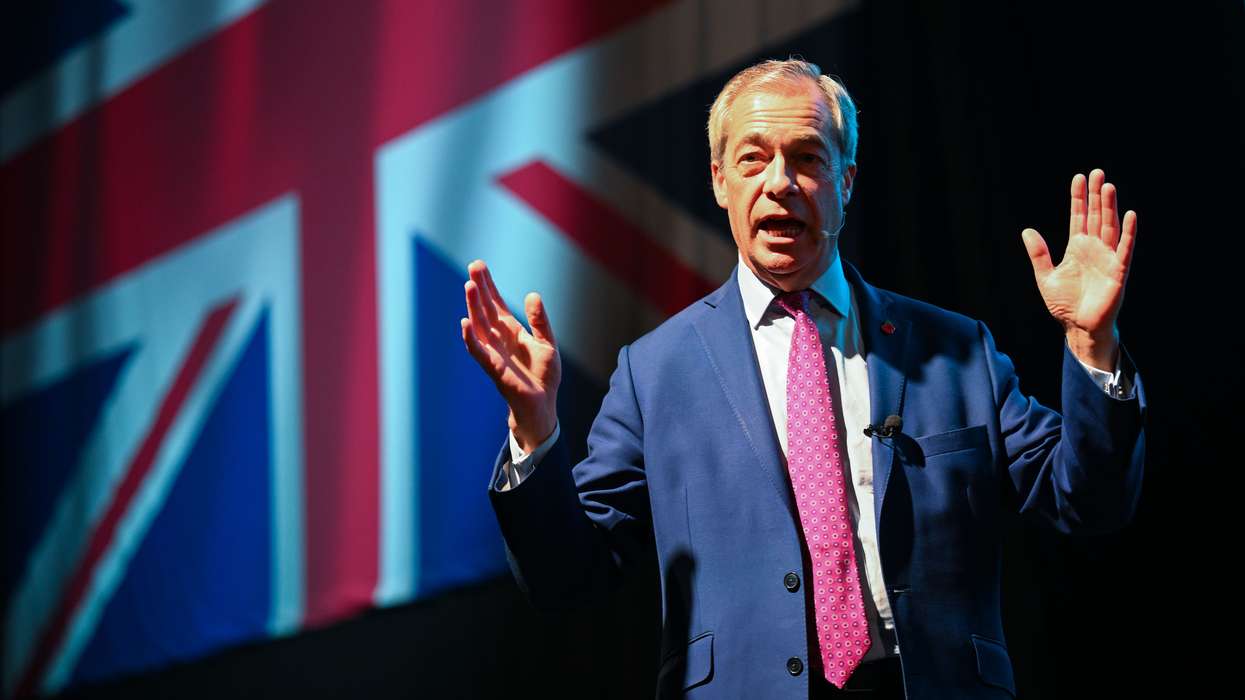A-LEVEL students across England, Wales and Northern Ireland have achieved record-high results outside of the Covid years, with boys overtaking girls in the top grades for the first time since 2018.
Figures released on Thursday (14) showed that 28.3 per cent of entries were awarded an A or A*, up from 27.8 per cent last year and well above the 25.4 per cent seen in 2019. Almost one in ten results — 9.4 per cent — achieved the highest A* grade, the largest proportion since the top grade was introduced in 2010, excluding the pandemic years.
More than 340,000 teenagers received their grades this morning, while the Universities and Colleges Admissions Service (UCAS) confirmed a record number had secured university and college places.
Education secretary Bridget Phillipson said, “Today is a time for celebration as young people up and down the country collect their exam results. Every young person should have the opportunity to achieve and thrive. This government won’t stand by and accept the entrenched inequalities that continue to blight the life chances of too many young people, especially those from white working class backgrounds who have long been overlooked.
“We’re already taking decisive action and making encouraging progress. With great options from degree apprenticeships and high-quality technical qualifications to traditional university routes, we are giving young people the tools they need to get great jobs, fill talent gaps, and help drive economic growth as part of our Plan for Change.”
London mayor Sadiq Khan congratulated students and encouraged those disappointed with their grades to seek advice from teachers, parents or the National Career Service. “I wish you all every success as you now take your next step in life,” he said.
This year, 28.4 per cent of boys’ entries achieved an A or A*, compared with 28.2 per cent of girls’. Boys also extended their lead in the highest A* grade, with 9.9 per cent compared with 9.1 per cent for girls. Girls continued to outperform boys across more subjects overall, especially in psychology, biology, sociology, art and design, and economics, and more girls achieved grades C and above.
Vivienne Stern, chief executive of Universities UK, said: “Today marks the beginning of doors opening for thousands of students. The increase in applications confirms that people rightly recognise the value of going to university, and it is particularly positive that we have seen an increase in students from the least advantaged backgrounds.”
Claire Thomson of exam board AQA said the differences between genders “bounce around a bit over time” and were likely due to “multi-faceted and complex” causes.
According to reports, mathematics remains the most popular A-level subject for the 12th year running, with entries rising 4.4 per cent to 112,000. Psychology stayed in second place, followed by biology. Business studies entered the top five for the first time, while physics jumped from ninth to sixth place.
Jo Saxton, chief executive of UCAS, said students were becoming more strategic about their subject choices, with a rise in STEM and business-focused studies reflecting career considerations. “Students are super savvy. They are clearly thinking about what they imagine their future career might look like,” she told Times Radio.
London recorded the highest share of A or A* grades at 32.1 per cent, while the north-east had the lowest at 22.9 per cent. The gap between these regions has grown to 9.2 percentage points, the widest since the current grading system began in 2010.
Pepe Di’Iasio, general secretary of the Association of School and College Leaders, said: “Big differences in attainment between regions, reflecting socioeconomic factors, remain a massive challenge. We have to stop merely talking about these issues and actually address them with investment in communities suffering from generational disadvantage.”
The results raised questions about whether grade inflation could be returning, but Ofqual chief regulator Sir Ian Bauckham insisted that standards had not changed. “We can be absolutely confident that the standard of work required to get any grade at A-level is the same this year as it was last year,” he said.
While students celebrate, many face rising university costs. From September, tuition fees for full-time courses in England will rise to £9,535 — the first increase since 2017.
Despite economic pressures, UCAS has assured students that universities have “student protection plans” in place to safeguard their studies.

Queen Elizabeth’s School shines
Queen Elizabeth’s School, Barnet, has marked its 20th consecutive year of outstanding A-level results, with more than 95 per cent of grades at A*–B throughout this period.
This year, 98 per cent of grades achieved by the school’s largest ever Year 13 cohort of 174 boys were in the top range. Over half of all grades (51 per cent) were at A*, a four per cent rise on the best pre-pandemic year, while 85 per cent were A* or A. In all, 51 boys – 29 per cent of the year group – achieved straight A*s, a statement said.
Headmaster Neil Enright praised the results, saying: “Huge congratulations go to our students on these brilliant results. At Queen Elizabeth's we see consistent excellence every year, with our boys securing places on highly sought-after courses at world-leading universities.”
This year, 49 boys (28 per cent) gained offers from Oxford or Cambridge. Overall, 62 per cent hold offers from QS World Top 10 universities, including Oxford, Cambridge, Imperial College London and UCL. Twenty-two of the 24 Russell Group universities made offers to the pupils.
Popular degree choices included mathematics, medicine, engineering and economics, with 14 boys taking up computing courses at top universities. More students are also choosing degree apprenticeships, with offers from companies such as Goldman Sachs, Amazon, Deloitte, Jaguar Land Rover and PwC, the statement added/
Enright credited the school’s academic and co-curricular programmes for the breadth of success. He said support would continue for leavers in the coming weeks and looked forward to welcoming them into the school's connect alumni network.





